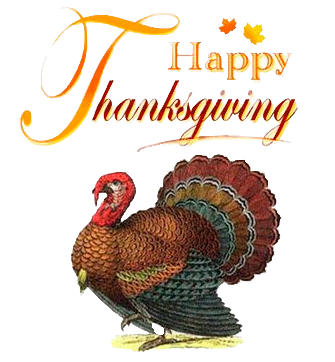Thanksgiving is upon us and we are gearing up to celebrate. This has always been one of my favorite holidays. Growing up, our family shared Thanksgiving each year with another family in Denver. We would drive the 450 miles one year, and they would drive the next. That tradition held on for about 25 years (I think) and it was a wonderful extended family experience, although they are not technically related. That tradition has faded away with the kids having grown up, been married, had kids, etc. Now, there are too many moving parts to make it work reliably. I still have many fond memories, though.
What Are You Thankful For?
I believe gratitude is one of the most helpful emotions we have. I find when I am grateful for my life, I give others a lot more grace, I am happier, and I can deal with challenges much more easily. Although I am not very good at remembering that fact on a daily basis (like I wish I would), Thanksgiving is a good time to reflect on giving thanks.
I very thankful for my family and how we have built into each other and stayed together. We can discuss difficult topics and (usually) come out pretty much unscathed. We know we are truly there for each other, even in those contentious times.
I thought about creating a long list here about all the things I am grateful for, but I will spare you. I think it doesn’t matter what you are thankful for, as much as it matters that you are thankful at all. Henry Cloud book, talks at length about this subject in his book, The Law of Happiness. I recommend reading it.
What You Going To Do With That?
I mentioned gratitude being a “useful” emotion. I wanted to expand on how I use it.
- Curing Depression. When I get in those long standing down times and everything is wrong with everything, gratitude can be the cure. Although it is tough to remember to do it, when I take time to be thankful in those times, my outlook on life is much improved. In engineering, there is a saying, “When you are up to your neck in alligators, it is hard to remember to drain the swamp.” If that is the case for you, find a friend to help.
- Creating Patience. When I am frustrated with some person, I stop and think about what I like about them. Why am I thankful they are here, right now? If I can be thankful about their existence, then the things they do to frustrate me are not really that big of a deal.
- Ignoring Problems. Much like the patience thing with people, being thankful for my life situation helps me to ignore the problems I perceive. When I can be thankful for the house we live in, it is easier to ignore the cracked tile in the bathroom…at least for a while. For me, hyper focus on those little problems lead me to a negative attitude, so I try to ignore them for a time.
While I think all the range of human emotions have value, gratitude is one that creates quick and consistent results.
Your Next Move
Take the time as you walk through the day, the weekend, and this life to be thankful for things.
Be thankful for the people around you and how they have made you better.
Be thankful for the “stuff” in your life and how life is better as a result.
Be thankful for you and how you are changing the world for the better.



